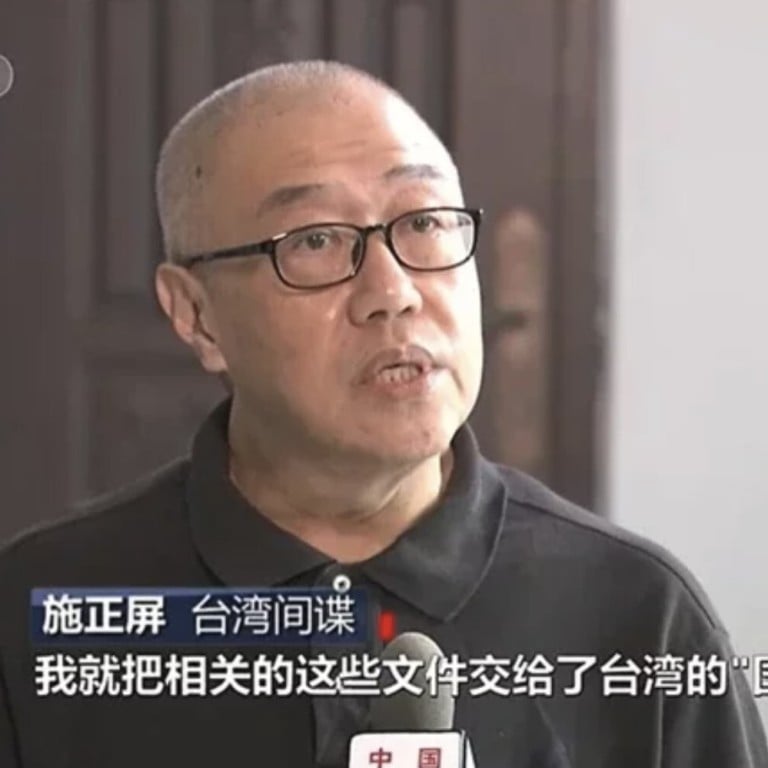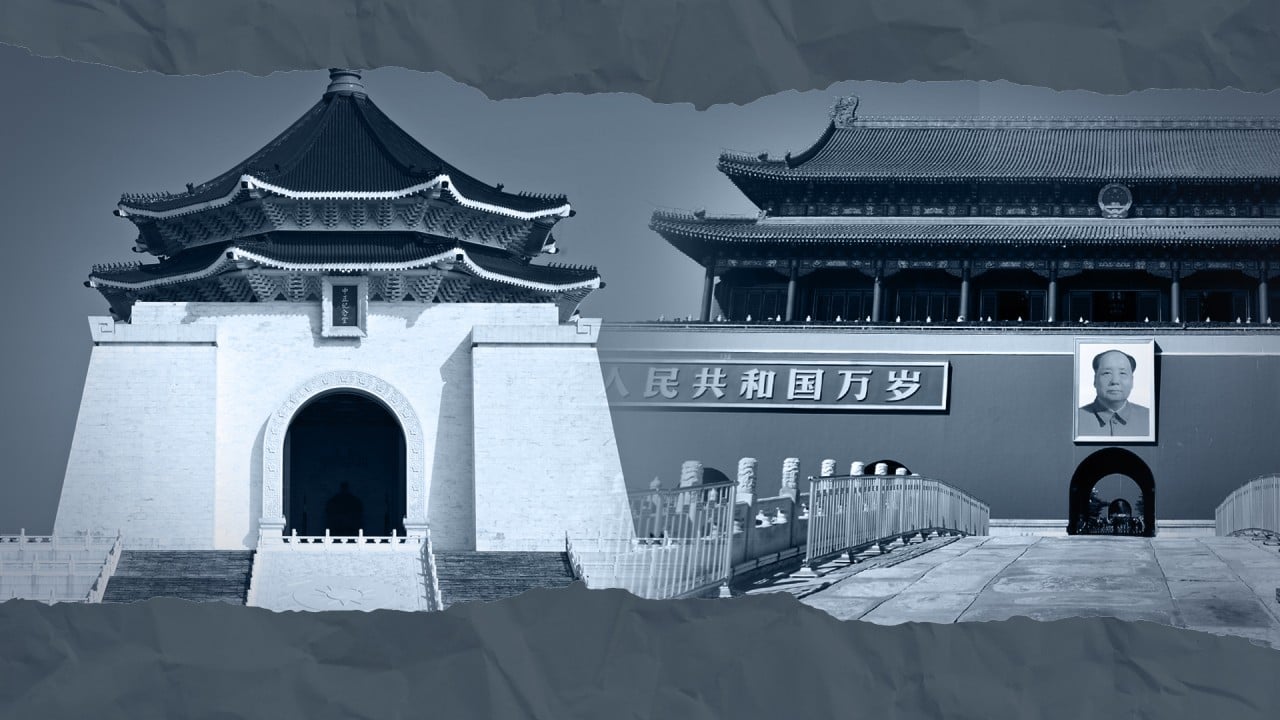
First of four accused Taiwanese spies sentenced to prison in China
- Retired professor Shih Cheng-ping given four-year term after ‘TV confession’ in October
- No news of three others who featured in state broadcaster CCTV special on espionage involving self-ruled island
A retired professor from Taiwan has been sentenced by a mainland court to four years in prison on spying-related charges.
The ruling against Shih Cheng-ping, a retired National Taiwan Normal University professor, was confirmed by Beijing’s Taiwan Affairs Office spokeswoman Zhu Fenglian at the regular press conference on Tuesday.
Zhu said Shih was deprived of his political rights for two years as part of the sentence, which was passed by the Maanshan Intermediate People’s Court in Anhui province, southeastern China, on Monday. Properties worth 20,000 yuan (US$3,000) were also confiscated, but she refused to say if Shih had requested an appeal.
Retired Taiwanese officers in probe over alleged spying activities
Shih is one of four Taiwanese scholars and businessmen who made “TV confessions” in a three-part special broadcast last month by state-run CCTV. Taiwanese Spies included claims that mainland authorities had uncovered hundreds of cases of espionage involving the self-ruled island since 2018.
But she confirmed that Beijing was compiling a global watch list of Taiwanese independence backers, a move she described as part of the mainland’s measures to “precisely hit independence diehards, supporters”, as well as those who helped fund such activities.
“The very small numbers of Taiwan independence diehards’ move to blatantly challenge national sovereignty and territorial integrity shouldn’t be tolerated,” Zhu told reporters. “We will continue to take precise strike measures to severely punish the diehards … [and] main supporters such as their funders.”
Last week, Hong Kong’s Beijing-backed Ta Kung Pao newspaper reported that Beijing was collecting a list of prominent advocates for Taiwan independence, or “stubborn separatists”, which might include Taiwan Premier Su Tseng-chang.
US leaves Taiwan wanting more with latest official visit off the menu
The Beijing government, which claims Taiwan as its sovereign territory, suspended official exchanges with Taipei on the election of the Democratic Progressive Party’s Tsai Ing-wen to the island’s presidency in 2016 when she refused to accept the one-China principle.
Taipei-based defence expert and media commentator Chi Le-yi said that what Beijing called “Taiwan independence moves” precisely reflected mainstream public opinion on the island, as shown by landslide victories for Tsai and her party in this year’s elections.
“When Taiwan wanted to participate in the World Health Assembly, Beijing said it was an attempt to ‘seek independence via pandemic’, while expanding international space is a move to create ‘one China and one Taiwan’,” Chi said. “If Beijing treats everything [Taipei does] as an ‘independence plot’ it will push Taiwan into a corner.”

10:22
Why has the relationship between the Chinese mainland and Taiwan taken a turn for the worse?
Alexander Huang Chieh-cheng, a former deputy minister on Taiwan’s Mainland Affairs Council – the agency responsible for cross-strait relations policy – said the inclusion of pro-Beijing Taiwanese scholars like Shih in the mainland’s ongoing massive crackdown against Taiwanese espionage would stifle cross-strait exchanges.
“Almost all the four Taiwanese citizens making camera confessions on CCTV are well-known for their anti-Taiwan independence political stance, and now they are hit. What does this mean?” he said.
“Indeed, a lack of transparency over Shih and the other cases also scares Taiwanese people and reminds them that there is a big gap of judicial justice across the Taiwan Strait.”
Shih and the other three Taiwanese have had no contact with their families for more than one year. The mainland authorities have said their trials will not be open to the public because they involve sensitive national intelligence.

